What to expect from Qantas’ unique A350 Wellbeing Zone
Stand, stretch and briefly socialise in this dedicated space on the Qantas A350.
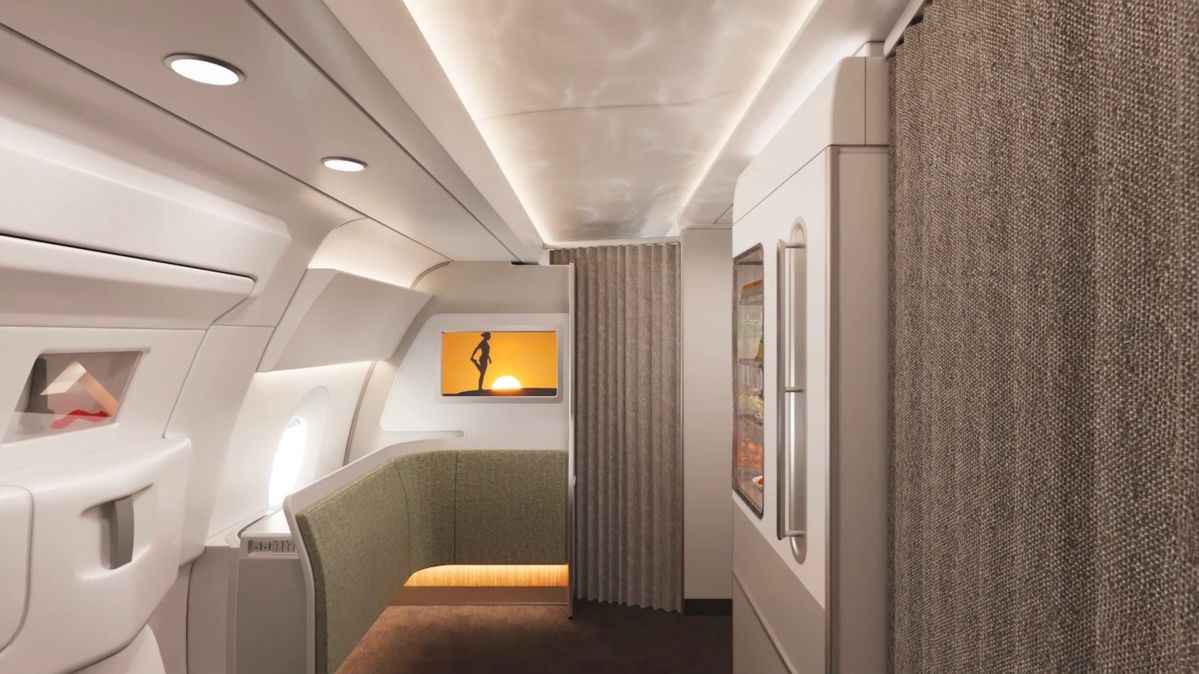
When Qantas launches non-stop Project Sunrise flights from Sydney and Melbourne to New York and London from the end of 2025, only one in four passengers will be cocooned in the Airbus A350’s first class roomettes and business class suites.
The majority of travellers on these 18-22 hour marathons will be sitting further back, in premium economy and economy – and despite those seats having more legroom than ever before, that’s still a long time to be stuck in one place.
So Qantas is giving those passengers another space to spend their time: a dedicated stand-and-stretch ‘wellness space’ where they can get out of their seat and follow simple exercises guided by instructions on a video screen.
A unique addition to the ultra-long range Airbus A350-1000 Project Sunrise jets, this Wellbeing Zone is the first of its kind in the world – and with good reason.
“Only 12 Airbus A350-1000ULRs with an extra fuel tank are being built, they’re being built for Qantas and will be the only aircraft that can fly from anywhere to anywhere in the world,” noted Qantas Group CEO Alan Joyce, speaking at a Project Sunrise media event in New York.
“Now that we have the aircraft technology to do these flights, we want to make sure the customer experience evolves as well.”
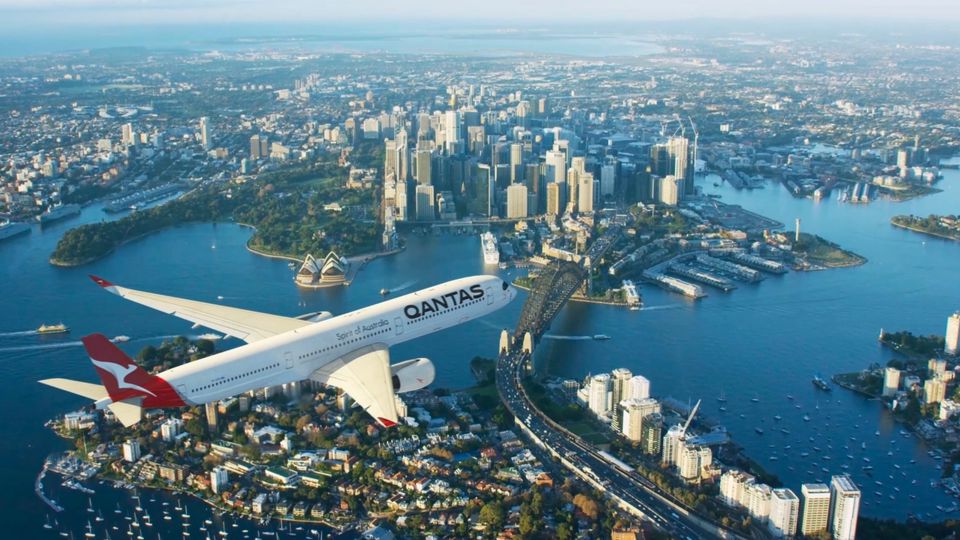
The Wellbeing Zone is a clever adaption of the A350’s door space between the premium economy and economy cabins, wrapping around on either side to free up space where up to eight passengers – four per side – can take a welcome break from their seats.
Large video screens will walk them through a series of simple movements designed to loosen up tired joints and get the circulation flowing.
Qantas and designer David Caon began conceptualising wellness and other ‘non-seating’ cabin spaces in the earliest days of Project Sunrise, and for a time that included the novel option of below-decks spaces in the cargo hold.
“This is is something that's been unexplored in commercial aviation,” Caon tells Executive Traveller, “so we didn’t really have anything to go off or to reference.
“We explored all kinds of different possibilities, and opportunities coming out of focus groups and research going around the time. We even looked at putting exercise bikes in there, but then you go ‘do I really want to sweat on a flight?’”
But beyond gentle exercise, the Wellbeing Zone has a second purpose on those globe-striding A350 flights: “It's about creating a destination for economy class passengers to spend a bit of time aside from their seat and giving people a reason to get up, to get out of their seats and move a little” so they feel better during and especially after the flight.
To that end, the Wellbeing Zone includes a self-service snack and ‘hydration’ bar – although Caon believes this won’t see the area morph into a social space, a de facto ‘Qantas Club above the clouds’.
“It’s not a social zone… it’s not about having booze, I don’t think there’ll even be alcohol in the chilled (self-serve) compartment. It’s more for people to visit, do some movement, get a refreshment and head back to their seats.”
“Obviously it’s going to be busier sometimes than other times but we’ve got to make sure the cabin stays quiet so as not to disturb passengers who might be sleeping back in the economy.”
Even so, thick sound-absorbing curtains will seperate the Wellbeing Zone from the premium economy and economy cabins.
Just past the left and right doors of the A350, each side of the Wellbeing Zone is framed by sculpted walls or ‘leaners’ against which passengers can stand, plus integrated grab handles to facilitate stretching.
“Passengers will see this area as they board, they’ll walk past it and know that it's there,” Caon reasons, “and when they come up later in the flight to grab a drink or a snack they’ll won’t need to go straight back to their seat, because you can sort of just chill here for a bit.”
Caon tells Executive Traveller each leaner can accommodate three passengers, with a fourth standing in front, for a total capacity of eight travellers in the Wellbeing Zone at any time – although he expected they won’t spend too much time there.
“We didn’t put seating here, because why get people to go from one seat to another seat? The area hasn't been designed for passengers to spend hours at. It’s for them to get up and have a break for 10 or 15 minutes.”
While the Wellbeing Zone is primarily intended for economy passengers, it will also be available to those in premium economy and even further up the front, Caon says.
“I see it as part of the economy cabin, but it lives between premium and economy so we see it for those two cabins more than the other ones. Business has its own the self-service bar and first class has a tonne of space, if they want to move of stretch they can do all of that in their suite.”
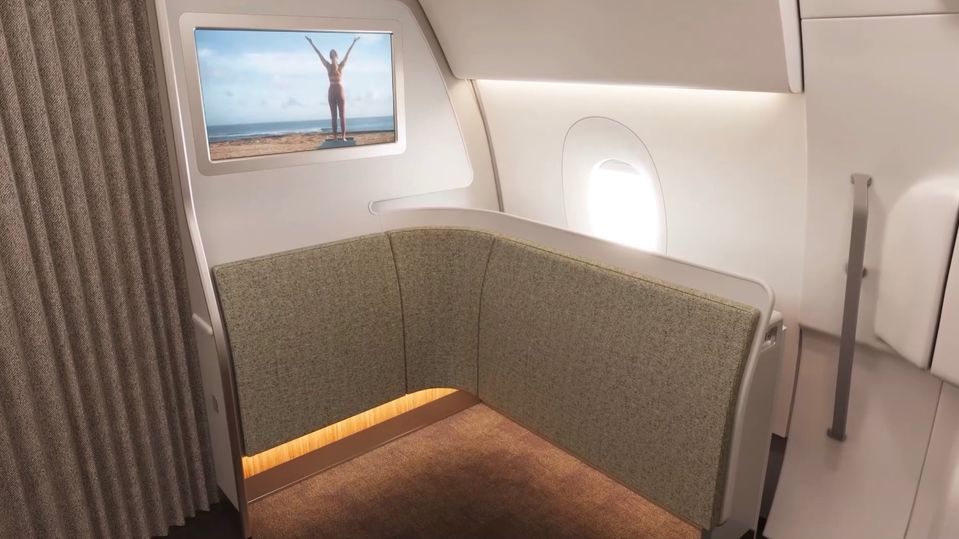
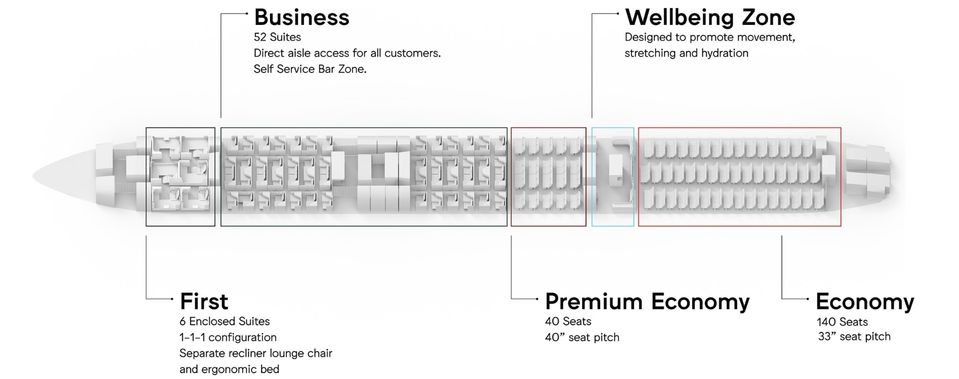

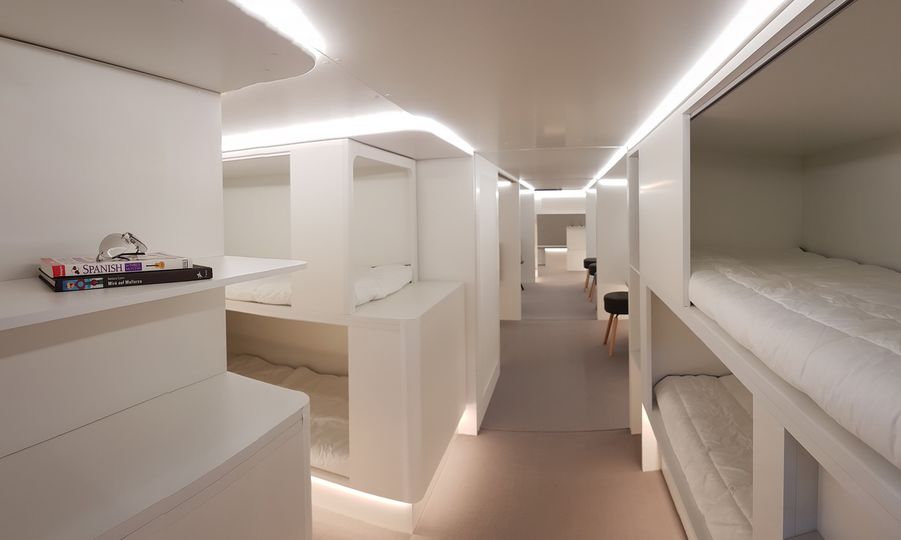
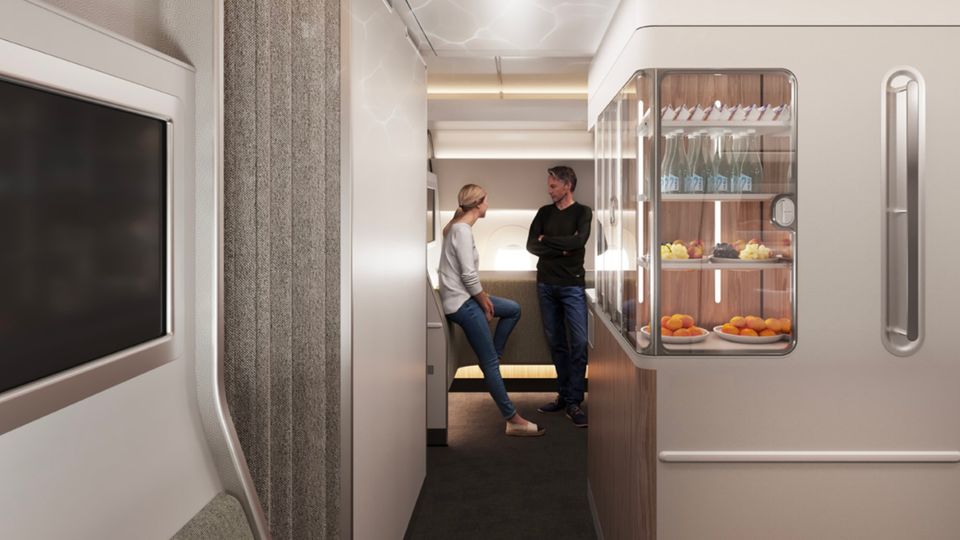
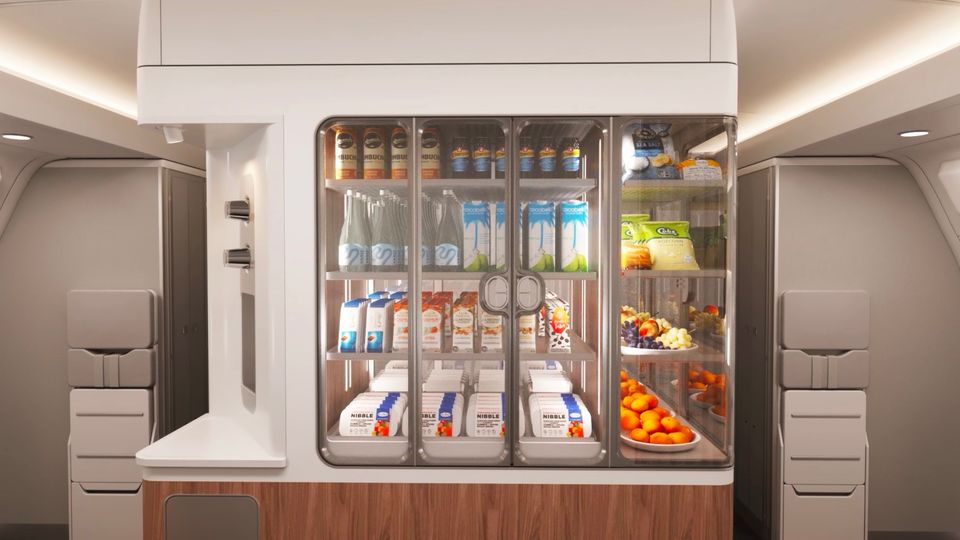
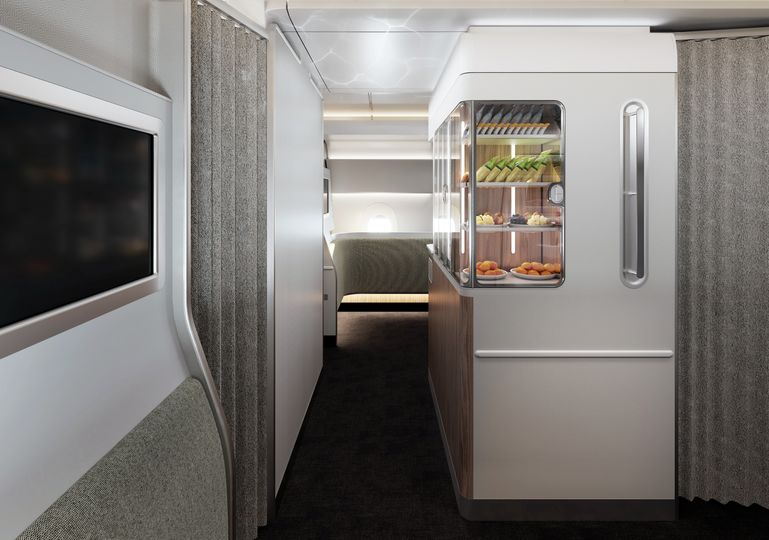
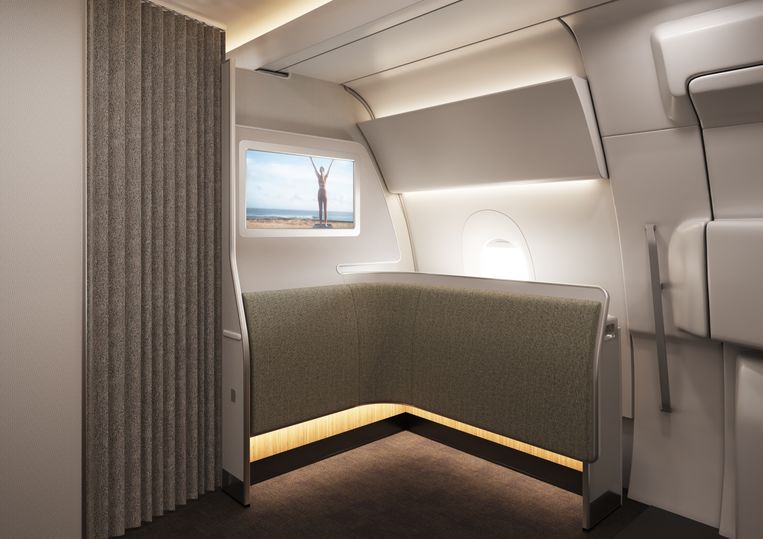
30 Oct 2014
Total posts 13
You actually do need a seat to relax for a while and escape the confines of an economy seat
Qantas - Qantas Frequent Flyer
30 May 2013
Total posts 383
I wonder how this will go down with the American authorities that don't allow passengers to congregate together on international flights to that country? ON any flight to America you hear the cabin crew ask passengers not to congregate near the toilets due to American laws.
25 Jun 2018
Total posts 51
On many flights over the years, I have moved to areas near doors and galleys (when not being used) to do stretches, knee bends, and various other ‘exercises’ and have always received compliments from FAs along the lines of - ‘what a good idea, more passengers should do that, keep up the good work’. The ‘soft gym’ should be on all aircraft for flights of more than 3-4 hours.
Qantas - Qantas Frequent Flyer
21 Jul 2013
Total posts 63
No thanks.
Qantas - Qantas Frequent Flyer
10 Jul 2016
Total posts 10
You don't want to ride exercise bikes because of sweat? What about you don't want to ride them in case you hit extreme turbulence?
Hi Guest, join in the discussion on What to expect from Qantas’ unique A350 Wellbeing Zone